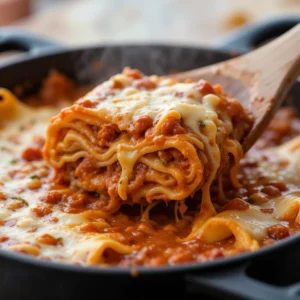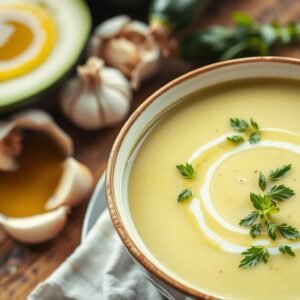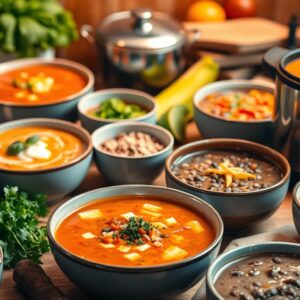I remember a cold winter evening in my grandmother’s kitchen. It was filled with the comforting aroma of her legendary vegetable broth. Those memories sparked my passion for creating delicious soup that warms both body and soul. Today, modern soup makers have made it easier than ever to craft restaurant-quality soups in your own kitchen.
Preparing a perfect soup is no longer a time-consuming challenge. With innovative soup makers, you can create everything from clear, delicate broths to hearty, rich stews with minimal effort. These clever kitchen appliances take the guesswork out of cooking, ensuring consistent, flavourful results every single time.
Whether you’re a busy professional seeking quick meal solutions or a passionate home cook exploring culinary creativity, soup makers offer an incredible way to enjoy homemade nutrition. You’ll discover how simple it is to transform fresh ingredients into delectable soups that rival those served in top restaurants.
In this guide, we’ll explore the art of soup making using modern kitchen technology. You’ll learn essential techniques, discover mouth-watering recipes, and unlock the secrets to creating perfect soups that will impress your family and friends.
Essential Features of Modern Soup Makers and Their Benefits
Modern soup makers have changed how we cook at home. They make making bouillon and consommé easy with new tech. These appliances have features that make soup prep simple and the results top-notch.
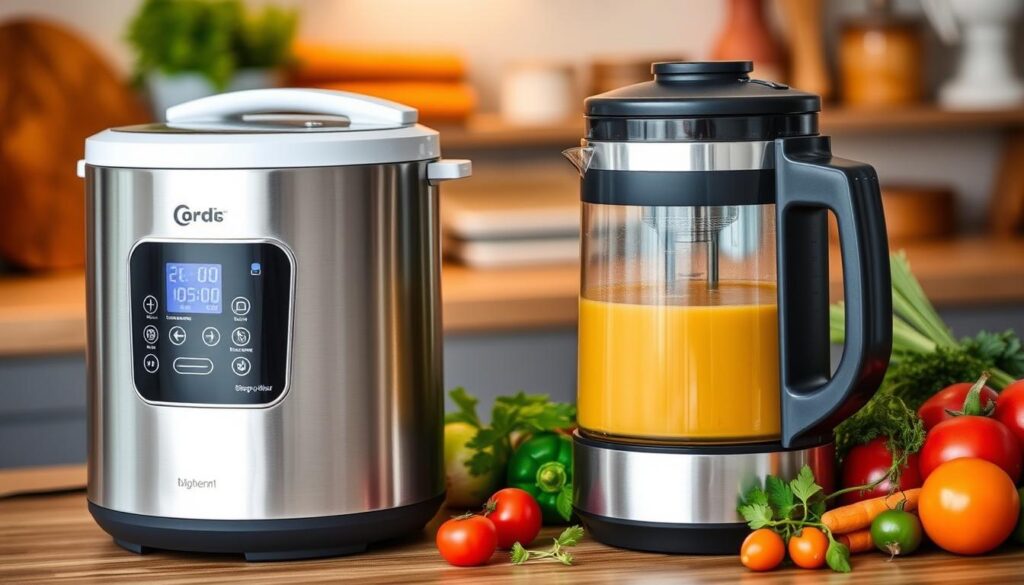
Knowing what these devices can do helps pick the right one. They help make soups that taste great and feel right.
Temperature Controls and Blending Precision
Good temperature control is key for perfect soups. You can:
- Make smooth consommé with exact heat
- Keep bouillon at the right temperature
- Stop overcooking fresh ingredients
- Get the same texture every time
Capacity and Size Considerations
| Soup Maker Size | Typical Capacity | Best For |
|---|---|---|
| Compact | 0.8-1.2 litres | Singles or couples |
| Medium | 1.5-2 litres | Small families |
| Large | 2.5-3 litres | Larger families or batch cooking |
Smart Programming Functions
Today’s soup makers have smart features. Digital interfaces let you pick soup types easily. Just press a button for bouillon or consommé.
- Pre-programmed cooking modes
- Automatic temperature control
- Timer and delay start options
- Self-cleaning programmes
Learning about these features can improve your soup-making. You’ll enjoy meals that taste like they’re from a restaurant, with little effort.
Basic Techniques for Creating Delicious Soup Base
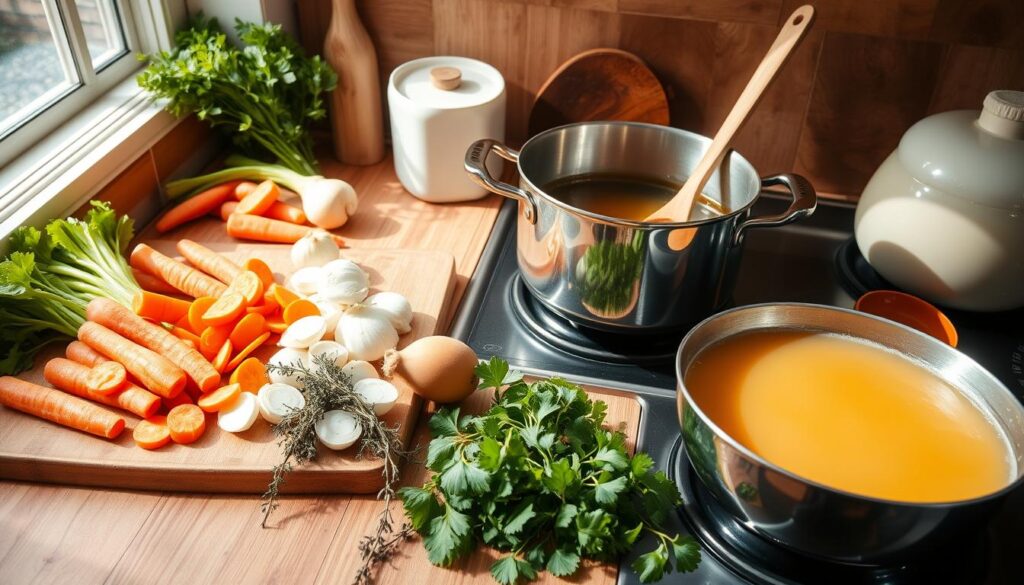
Making a tasty soup base is key to great chowder and stew recipes. It all starts with knowing the essential techniques. These methods turn simple ingredients into rich, complex dishes.
The first step in making a delicious soup base is to prepare your aromatics well. Sautéing onions, garlic, and celery makes a flavourful base. This base can make both light broths and hearty stews taste better.
- Select fresh, high-quality vegetables
- Use butter or olive oil for sautéing
- Cook aromatics until they become translucent
Choosing the right stock is important for your soup’s flavour. Here are some stock options for different chowder and stew styles:
| Stock Type | Best Used For | Flavour Profile |
|---|---|---|
| Chicken Stock | Light soups, creamy chowders | Mild, versatile |
| Vegetable Stock | Vegetarian stews | Clean, pure vegetable essence |
| Beef Stock | Hearty winter stews | Rich, robust |
To add depth and balance, try herbs, spices, and unexpected ingredients. A bit of wine or a pinch of miso can make a simple soup special.
- Layer flavours gradually
- Taste and adjust seasoning
- Allow ingredients to develop complexity
Your soup base is where you can get creative. Learn these techniques, and you’ll make chowders and stews that everyone will love.
Classic Vegetable Soup Recipes for Your Soup Maker
Exploring vegetable soup recipes can change your cooking game. Your soup maker turns into a cooking buddy, making top-notch dishes easy. Here are three classic vegetable soup recipes to boost your cooking skills.
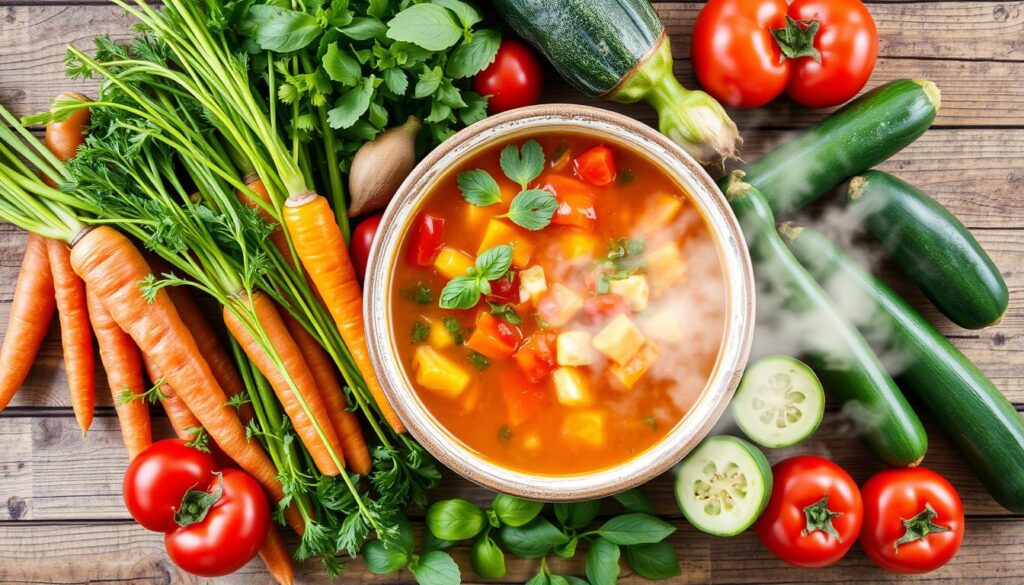
Each recipe brings its own special flavours and cooking methods. They’re great for anyone wanting to get better at making soups. You’ll find creamy textures and refreshing tastes to try out.
Creamy Butternut Squash Bisque
A velvety bisque turns simple butternut squash into a fancy dish. It needs just a few ingredients but packs a big flavour punch. Your soup maker makes it silky smooth, just like a pro’s kitchen.
- Select ripe butternut squash for best results
- Roast squash before blending for deeper flavour
- Add cream for extra richness
Mediterranean Gazpacho
Gazpacho is perfect for hot summer days. It’s a cool, healthy soup filled with fresh veggies and Mediterranean tastes. Your soup maker blends it all into a smooth, refreshing dish.
- Use ripe tomatoes for authentic taste
- Include fresh herbs like basil
- Chill thoroughly before serving
Hearty Root Vegetable Potage
As autumn comes, a warm potage is just what you need. It’s a mix of root veggies that’s both nourishing and tasty. Your soup maker makes it easy to make this classic soup.
- Combine carrots, parsnips, and turnips
- Season with thyme and black pepper
- Blend until smooth and creamy
These vegetable soup recipes show how versatile your soup maker is. Whether it’s a light gazpacho or a hearty potage, you’ll make delicious meals with ease.
Mastering Protein-Rich Soup Varieties
Making protein-packed soups turns simple meals into full meals. Your soup maker is a key tool for making tasty, filling dishes. These dishes are good for you and taste great.
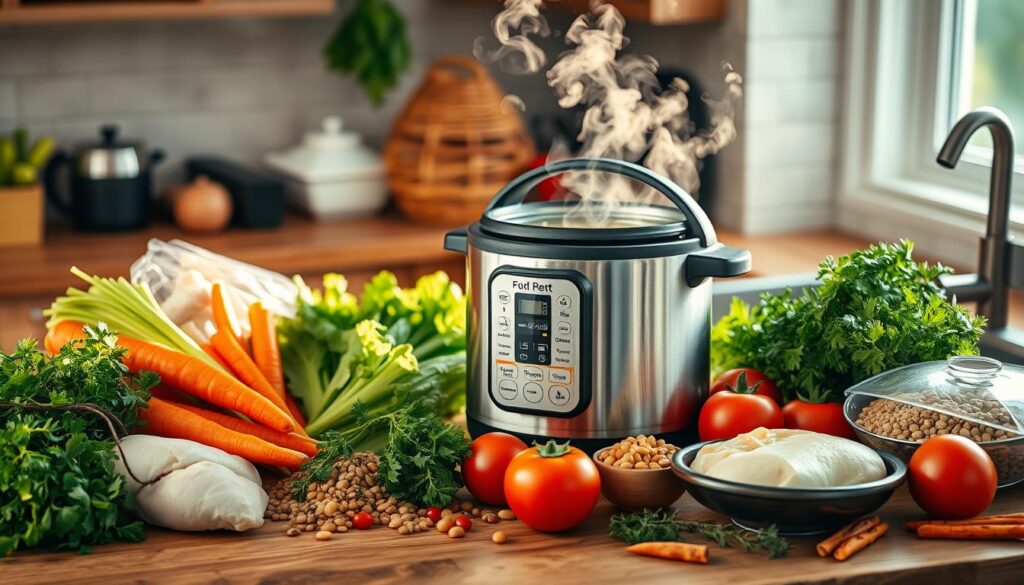
- Choose lean meats like chicken or turkey
- Try plant-based proteins like lentils
- Use fish for soups rich in omega-3s
Using protein purée techniques can make your soup smoother and easier to digest. Blending cooked proteins makes the soup creamy and smooth. Everyone loves it.
| Protein Source | Nutritional Value | Soup Style |
|---|---|---|
| Chicken Breast | High protein, low fat | Creamy chicken purée |
| Red Lentils | Plant-based protein | Spiced lentil soup |
| Salmon | Omega-3 rich | Seafood bisque |
Try mixing different proteins to find your favourite soups. Make sure to add veggies and grains too for a balanced meal.
Your soup maker makes it easy to blend ingredients. This way, you can make top-notch protein soups at home. Start making these protein-rich soups today!
Tips for Achieving the Perfect Soup Consistency
Mastering soup consistency is an art that turns ordinary soup into something special. Your soup maker can help you achieve the perfect texture. But, it’s important to know the right techniques.
Creating the perfect soup is all about adjusting ingredients and techniques. Each soup type needs a unique approach to get its ideal consistency.
Adjusting Liquid Ratios
Liquid ratios are key to the texture of your soup. Here are some tips for different types of soups:
- Thin consommés: Use 4-5 parts liquid to 1 part solid ingredients
- Creamy soups: Reduce liquid to 2-3 parts per solid ingredient
- Hearty stews: Keep a 1:1 liquid-to-ingredient ratio
Blending Techniques for Different Textures
Blending changes how your soup feels in your mouth. Different methods give different textures:
| Blending Technique | Resulting Texture |
|---|---|
| Pulse blending | Chunky, rustic texture |
| Continuous blending | Silky smooth consistency |
| Partial blending | Mixed texture with some whole ingredients |
Troubleshooting Common Consistency Issues
If your soup isn’t right, try these expert fixes:
- Too thin: Add cornflour slurry or reduce liquid
- Too thick: Add more stock or water
- Grainy texture: Strain through a fine-mesh sieve or blend longer
Try these methods to make soups with top-notch consistency every time.
Time-Saving Batch Cooking and Storage Methods
Learning to cook soup in batches can change how you prepare meals. Your soup maker is key to efficient planning. It lets you make lots of soup at once. This saves time and effort.
Choosing the right containers is important when making soup in bulk. Glass containers with tight lids are best for keeping soup fresh. They help keep the flavour in and prevent freezer burn. Divide the soup into portions for easy reheating, which keeps it tasting great.
Reheating soup right is important to keep it tasty. Thaw frozen soup in the fridge before reheating. Heat it gently and stir often to avoid burning. Some soups, like creamy ones, might need a bit more liquid to stay smooth.
Getting creative with leftover soup can make it even more useful. It can be a pasta sauce, a casserole base, or a tasty liquid for cooking grains. This way, you use up all the soup and make the most of your time in the kitchen.
